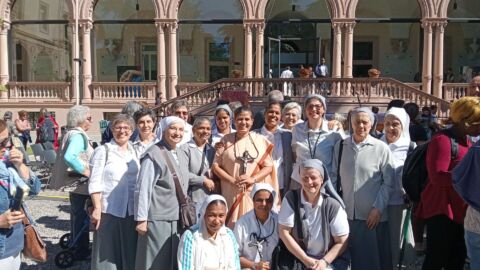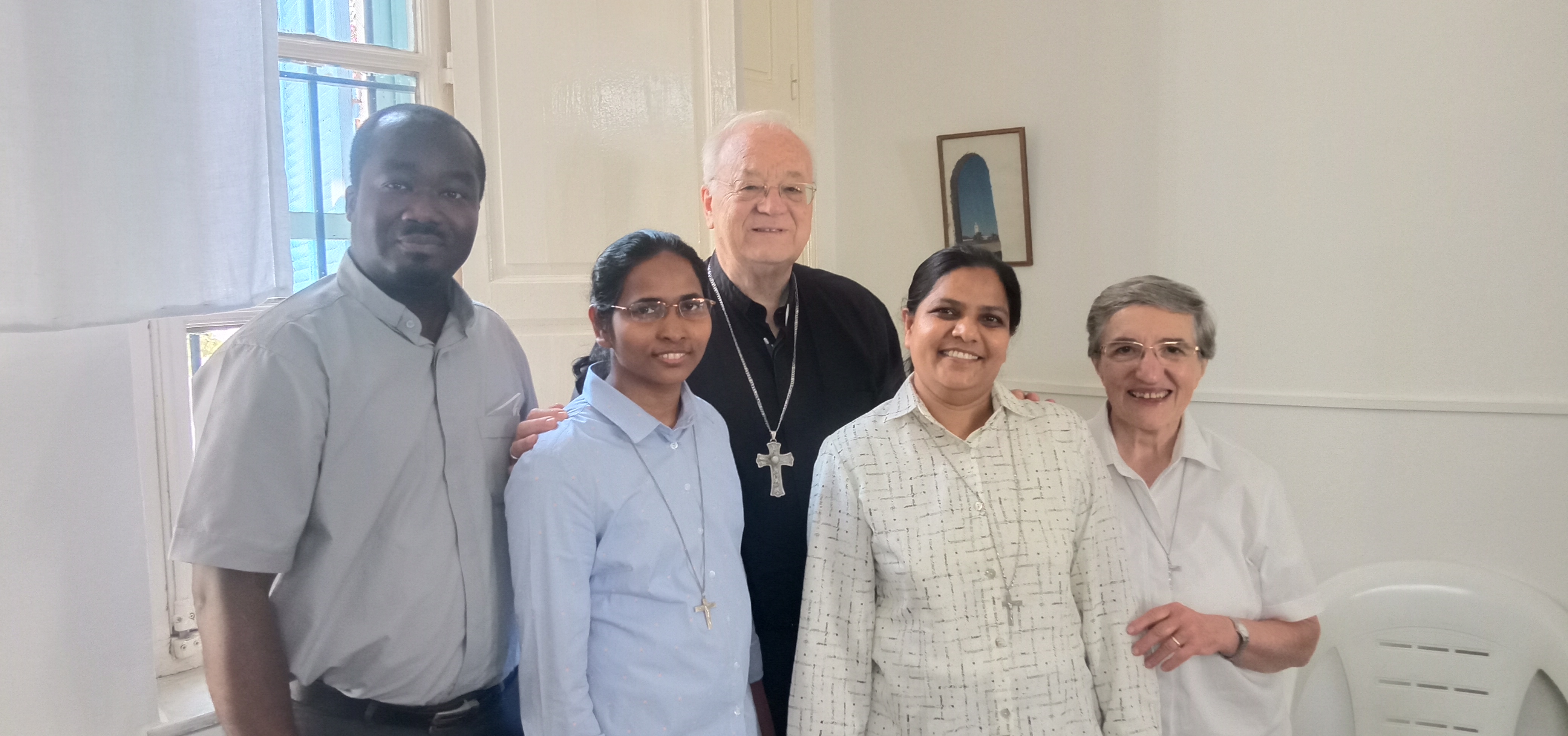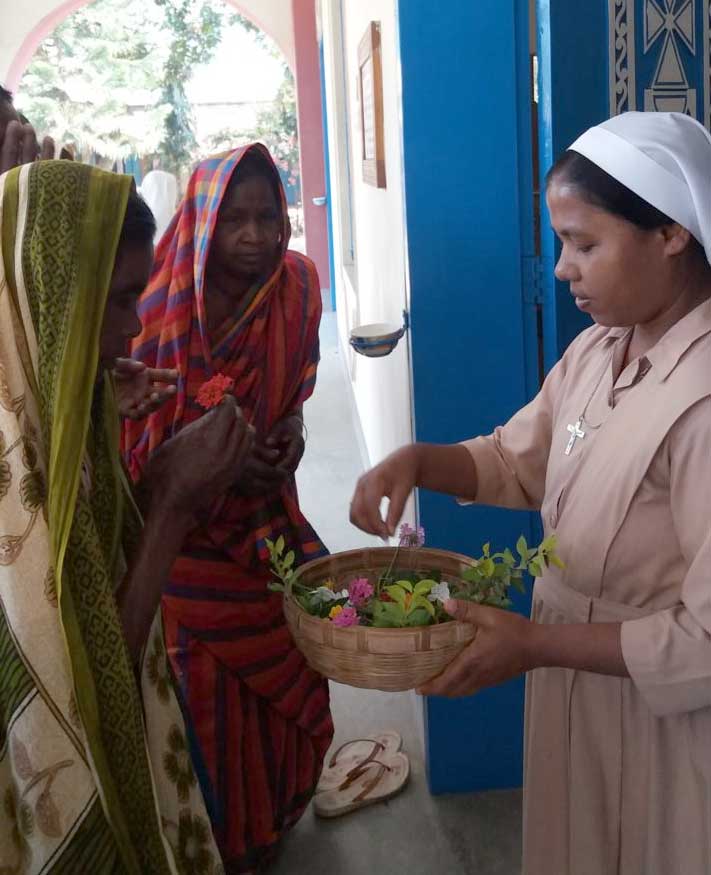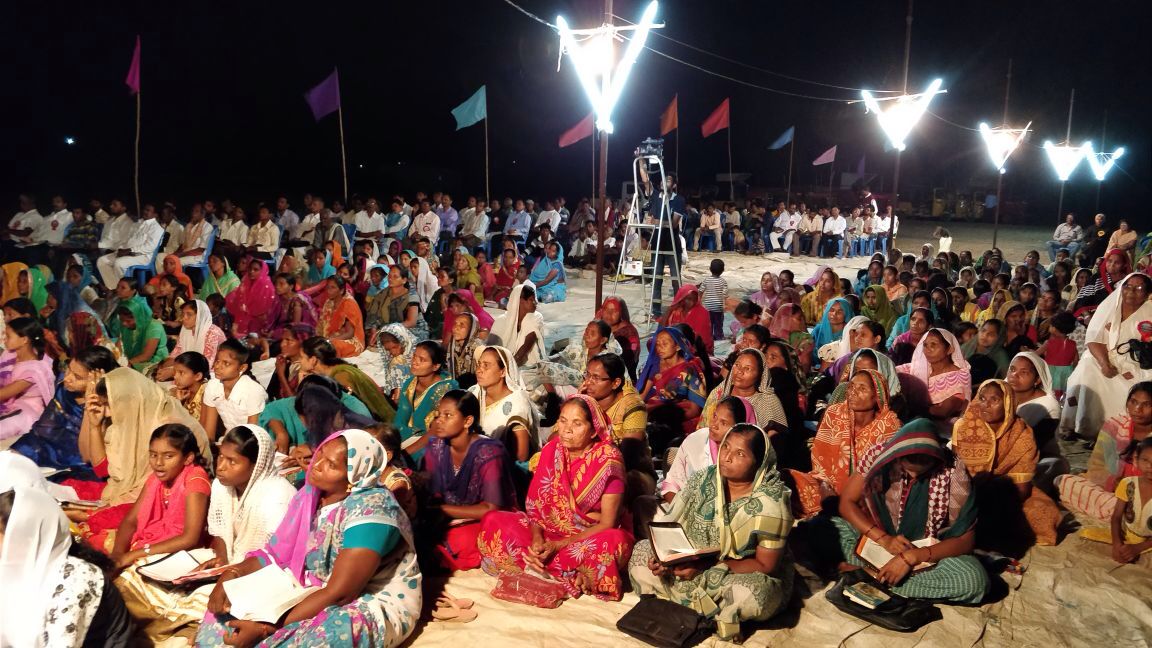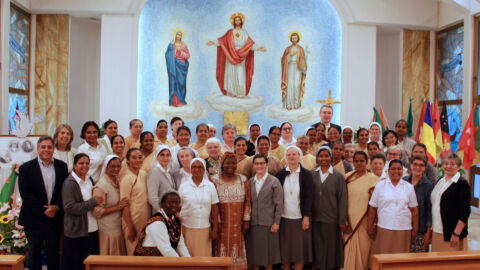The ground breaking encyclical “Fratelli Tutti” of Pope Francis invites us to transcend every barrier and border, and rise above the dividing factors like races, colour, faith, cast and class.
Respect for other religions:
We in India are blessed with more than seven religions and the consecrated persons in India serve among all these religions and have daily dialogue of life with people from various religions. It is nothing new in India. We need to respect other religions. The different religions, based on their respect for each human person as a creature called to be a child of God, contribute significantly to building fraternity and defending justice in society.
As Indian Christians, we are called to move beyond our individual self to families, families to neighbourhoods, villages, cities, nations and the human race as a whole. This is not just in terms of dialogue with all religions and cultures. But through a dialogue of action to build collective sensibility, organised around common action and work towards common good at all levels.
Religions and Fraternity
In the eighth and final chapter, Pope Francis focuses on “Religions at the service of fraternity in our world” and emphasizes that terrorism is not due to religion but to erroneous interpretations of religious texts, as well as “policies linked to hunger, poverty, injustice, oppression” (282 & 283). A journey of peace among religions is possible and that it is therefore necessary to guarantee religious freedom, a fundamental human right for all believers (279).
The Encyclical reflects, in particular, on the role of the Church: she does not “restrict her mission to the private sphere”, it states. While not engaging in politics she does not, however, renounce the political dimension of life itself, attention to the common good and concern for integral human development, according to evangelical principals (276-278).
Lastly, Pope Francis quotes the “Document on Human Fraternity for World Peace and Living Together”, which he signed on 4 February 2019 in Abu Dhabi, along with the Grand Imam of Al-Azhar, Ahmad Al-Tayyib: from that milestone of interreligious dialogue, the Pontiff returns to the appeal that, in the name of human fraternity, dialogue be adopted as the way, common cooperation as conduct, and mutual knowledge as method and standard (285). In the process, Pope Francis has placed before the church possibilities of relooking at and altering long held beliefs, to build a new order of relationships.
Interreligious Worship leading to Social Transformation:
Interreligious worship is not a closed or self-complacent programme. Neither is it an emotional experience. However, it is a dynamic and life-transforming encounter with God. God’s covenantal love includes also his loyalty towards his covenant partners, who are the poor. This love of God, which we experience during the interreligious worship, should impel us to immerse ourselves in the transformation of our society.
Our interreligious worship, if it has to be faithful to the biblical revelation, worthy of God, whom the Bible reveals, must strive to be a moment of true spiritual experience, deep encounter with God, and unquestionable commitment and service to His plan of salvation.
If it has to serve its real finality, it should necessarily be followed by a sincere and firm commitment to fight against all kinds of injustice, oppression of every form of injustice. It should be a worship made in “spirit and truth.” It means to say that the experience of God received in the interreligious worship should be like the experience of Moses, who, while approaching the burning bush, met the burning love of God, and who did not continue to stay on the mountain, but, came down from the mountain and became the liberator of His people.
Interreligious worship should become like the prayer experience of Jesus at the Garden of Gethsemane, after which Jesus stood up and walked to the cross.” Love experienced in freedom necessarily leads to conflicts. As the Indian biblical scholar Soares-Prabhu says, “The cross is no arbitrary intrusion into the life of Jesus.” It is the natural outcome of Jesus’ experience of His Father’s love in all its depth, which inevitably finds its expression in a life of solidarity with the weak, the unfortunate and the poor.
Our awareness of being loved by God in interreligious worship and prayer meetings gratuitously pushes us forward to reach out to others in love. As St. John says, “Anyone who does not love, does not know God” (1 John 4:8). As St. Paul exhorts us, we need to put on love above all else (1Cor. 13:1-3) and allow the Spirit to blow how He wills. He never fails. Consequently, interreligious worship is more than simple dialogue for living together in harmony. It is more than finding common ground. It is a matter of inspiring and challenging each other.
Sr. Ramila Vadakiya, Delhi Delegation


